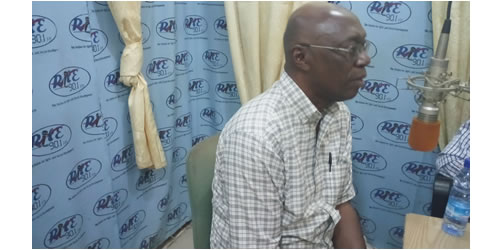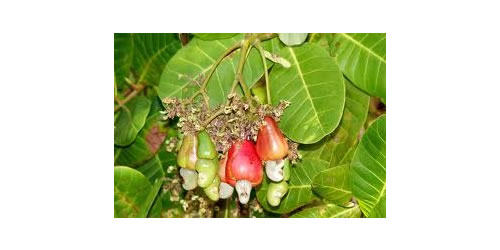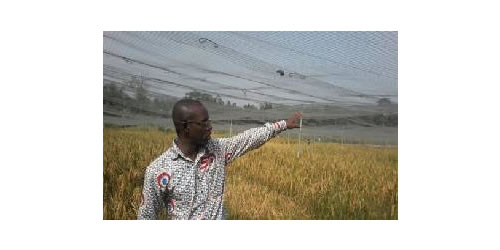Ghanaians asked to question nutritional content of foods

Mr Yakubu Alhassan, Deputy Minister of Agriculture in charge of Crops, on Thursday said Ghana had achieved a lot in terms of food production, but it was important to question the nutritional content of foods produced.
He said: “as a country we need to recognize the fact that nutrition issues are very genetic, and as such the food environment needs to be improved”.
Mr Alhassan made these remarks at a de-briefing session on the Second International Conference on Nutrition (ICN), organized by the Women in Agricultural Development (WIAD), in Accra.
The session was to brief stakeholders and key sector players on the outcome of the Conference in Rome last year, and to decide on the way forward.
He said the nutritional problems existing in the country could also be addressed if pieces of information about foods and their nutritional values were made available for the general public to consume.
He urged stakeholders in the agricultural sector to make use of technologies available to incorporate nutritional needs into their programmes, as well as institutionalize data collection to provide information at all levels of the food production process.
Mrs Kate Quarshie at the Nutrition Department of the Ghana Health Service, recounted that the ICN was first held in 1992 where a World’s Declaration and Action Plan were developed, to reduce starvation and famine, widespread chronic hunger, impediments to optimal breastfeeding, inadequate sanitation, poor hygiene and unsafe drinking water, under nutrition especially in children, women and the aged.
She said the second conference was organized by the World Health Organization and the Food and Agricultural Organization (FAO) to keep nutrition high on the global agenda, with the objectives of reviewing progress made since 1992, to reduce malnutrition, country level achievements, to identify policy measures in health, agriculture, trade, consumer policy and social support to improve global nutrition.
She said it was also to raise the political will necessary to mobilize the resources needed for achieving global nutrition.
Mrs Quarshie disclosed that the conference came out with two action documents, namely, the Rome Declaration, which set out what the FAO would have to do with regards to nutrition, and the Framework for Action, to review national policies and investments to integrate nutritional objectives.
She said the Framework for Action was also to strengthen local food productivity and processing, promote and diversify crops, including under-utilized traditional crops.
“Improve storage, preservation, transport and distribution of technologies and infrastructure development, adopt and adapt appropriate international guidelines on healthy diet”, she stated.
According to Mrs Quarshie, the conference also identified nutrition specific areas to address the various forms of malnutrition, including stunting, wasting (a form of acute malnutrition), childhood overweight and obesity, anaemia and malaria.
She said the conference also recommended the development of an appropriate national nutritional plan, the creation of an enabling political environment, and an increasing responsible and sustainable investment in nutrition at the national level.
She said as a country, the way forward was to integrate nutrition into food security efforts, scale up programme activities in all parts of the country, closer collaboration and coordination of all activities, and finalize sector nutritional strategic plans for costing and integration into the national plan for cabinet approval.
Mr Yaw Atobrah of the Fisheries Commission, said in order to achieve the correct level of nutrition, there was the need for visibility and urgency, inclusiveness and empowerment of stakeholders, political commitment, results-oriented policies, education on nutrition and massive budgetary support.
He said key consideration in the national policy should also include availability and accessibility to nutrient rich food, policies that would make the select value chain more nutrition sensitive, reduction of inequalities among societies, serious investment in nutrition and multi-sectorial approach and documentation.
Mr Atobrah noted that in the area of fisheries, the conference recommended for a strong measure to improve fish food related inspection, strong advocacy for fish as a toll to fight nutrition, establish a standby working relationship with the parliament on nutrition, and constitute a national nutrition team comprising of members from identified key sector and stakeholders.
Mrs Mary Opoku Asiama, Director of WIAD, said nutritional status was a key development indicator and malnutrition constitutes significantly to child mortality globally.
She said the causes of malnutrition included poverty, under development and poor socio- economic status, inadequate access to food, poor sanitation and diseases.
She said the conference decided that there was the need for an international corporation for nutrition, to support and complement national nutrition, support family farmers and small holders, notably women.
Mrs Asiama said the conference also suggested that an enhanced political commitment and social participation for improving nutrition at the country level through political dialogue and advocacy be looked at.
Source: GNA





